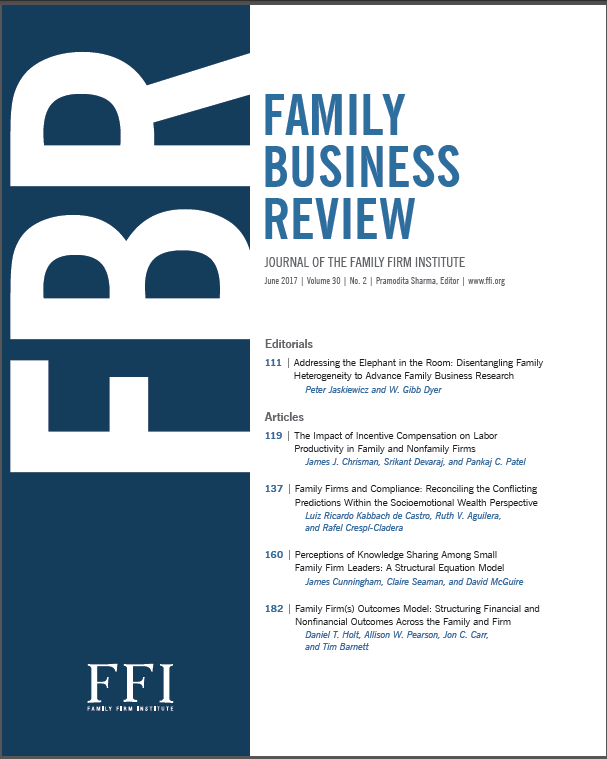业绩不佳的家族企业的重组:社会情感财富的作用
IF 5.6
1区 管理学
Q1 BUSINESS
引用次数: 0
摘要
家族企业投资组合的所有者如何重组表现不佳的企业?为了回答这个问题,我们对六家业绩不佳的家族投资组合公司进行了深入的定性案例研究分析,并在此基础上进行了 39 次访谈、117 项档案数据以及历时两年的观察。借鉴社会情感财富(SEW)观点和承诺升级(escalation-of-commitment)文献,我们认为,家族企业所有者最初对重组表现不佳的投资组合公司表现出克制行为。随后,他们会表现出升级行为,首先进行投资,然后重新安排资产,以保障公司层面的 SEW。然而,当保留这些表现不佳的公司威胁到剩余投资组合的生存,进而威胁到投资组合层面的 SEW 时,家族企业所有者就会通过撤资来表现出降级行为。他们最好是尝试出售,当出售不再是一种选择时,就会进行清算。我们建立了一个模型,有助于从理论上更深入地理解家族企业在投资组合创业背景下的重组行为。本文章由计算机程序翻译,如有差异,请以英文原文为准。
Restructuring of Poorly Performing Family-Owned Portfolio Firms: The Role of Socioemotional Wealth
How do owners of family firm portfolios restructure poorly performing firms? To answer this question, we conducted an in-depth qualitative case-study analysis of six poorly performing family portfolio firms, on the basis of 39 interviews, 117 pieces of archival data, and observations we gathered over 2 years. Drawing upon the socioemotional wealth (SEW) perspective and escalation-of-commitment literature, we suggest that family firm owners initially show refraining behaviors toward restructuring their poorly performing portfolio firms. Subsequently, they exhibit escalating behaviors by first investing and then reshuffling assets, to safeguard firm-level SEW. Yet, when retaining these poorly performing firms threatens the existence of the remaining portfolio and, thus, portfolio-level SEW, family firm owners exhibit de-escalating behaviors by divesting. Preferably, they attempt a sale and, when a sale is no longer an option, a liquidation. We developed a model that contributes to a more granular theoretical understanding of the family firm’s restructuring behavior, in the context of portfolio entrepreneurship.
求助全文
通过发布文献求助,成功后即可免费获取论文全文。
去求助
来源期刊

Family Business Review
BUSINESS-
CiteScore
12.40
自引率
13.60%
发文量
13
期刊介绍:
Family Business Review (FBR) has been a refereed journal since 1988, serving as the premier scholarly publication dedicated to the study of family-controlled enterprises. It delves into the dynamics of these businesses, encompassing a range of sizes from small to very large. FBR concentrates not only on the entrepreneurial founding generation but also on family enterprises in subsequent generations, including some of the world's oldest companies. The journal also publishes interdisciplinary research covering families of wealth, family foundations, and offices.
 求助内容:
求助内容: 应助结果提醒方式:
应助结果提醒方式:


